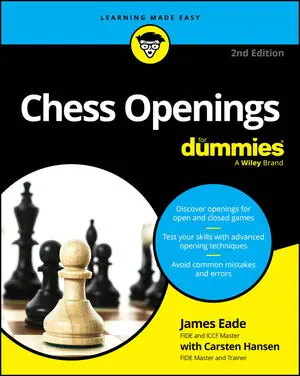Serious chess players care about chess data; they want as many games as possible in a format that makes the games easy to both sort and play through.
Some chess data and programs that handle it for you are for sale, such as ChessBase, which has developed into the industry standard. Chess Assistant also has a loyal following. If you own a Mac, take a look at Mac Chess Explorer. You can purchase most popular programs at any of the online chess retailers.
Some chess databases are available free online. A nice, free web-based database is chessgames.com. You may also want to check out Scid, sophisticated freeware that works with Windows, Linux, and Mac. Go to SCID. You can even install an engine, like the powerful but free Crafty into Scid so that it analyzes the games of your choice with you.
As you hunt for free chess games online, you'll run across a database format called PGN, which stands for portable game notation. The beauty of a PGN file is that games are stored in plain text in standard notation (and thus can be opened in Microsoft Word or Notepad), but they're also stored in a way that can be processed by chess computer programs. So, when you find a PGN file online that contains games you want, you don't need a special program to print it to play over the games on your own board.
You can also install the game in your chess database, if you have one on your computer. Or, you can simply install a PGN reader to play through the games onscreen without the fuss of setting up a real board and set. One free PGN reader is Winboard, which can be downloaded at XBoard. (But make sure to look over games on a real board and set from time to time — after all, your most important games will be in 3D.)
A PGN file can contain a single game or thousands of games in a database. Specialized PGN databases can give you a wonderful amount of valuable information. You can get databases of many games with your favorite openings. For example, if you think you may want to specialize in the French Defense against 1. e4, you can download a database of games that start with the French Defenses.Here's the great part: Lots of free PGN files are available online. One website that offers a free PGN database is The Week in Chess. But you can also just try searching online for whatever interests you, for example, "Caro Kann PGN."
Another terrific way to improve your game with the help of a chess database is to play over the games of a grandmaster — or even a world champion — whose games appeal to you. Maybe you like the openings the GM plays, the way they manage to whip up an attack, or their defense against the attacks of others.
Chess is like other competitive activities in this regard — if you study a hero you especially admire, you'll pick up a lot of tips for your own game. You can build or download databases (some in free PGNs) that pull together many games of top players.






